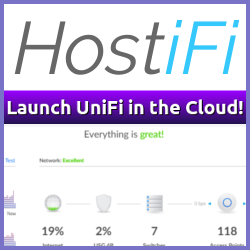I recently set up a new Veeam Backup & Replication v8 demo lab, and my intial small job that consisted of two different Linux VMs and one Windows Server 2012 R2 Domain Controller was chugging along nicely. I had one minor from the start though, and that was that file indexing consistently failed for the Windows VM. No big deal, but I thought it was strange at the time.
Inspired by Scott Lowe’s Looking Ahead: My 2015 Projects, I’ve decided to do something similar.
Since I didn’t post anything like this in 2014, I can’t really go back and see how my plans turned out, or provide any assessement of it. I can say this though, 2014 was pretty awesome. I got a promotion, my vExpert status was renewed, vNinja was voted in the top 50 of the 2014 top VMware & virtualization vote, I published a book and finally got the Norwegian VMUG up and running. My VCAP-DCA 550 should be on this list as well, and so should my failure in achieving VCAP-DCD certification status. 2014 was also the busiest year in vNinja.net’s history, with close to a doubling of traffic generated through the year. The same goes for vSoup, some of the episodes we recorded in 2014 had some rather insane listening numbers…
Obviously I’m a bit late to the party here, but I guess late is better than never. It recently dawned on me that mucking about with lots of different file formats, interfaces and ways of doing things is rather counterproductive.
A lot of my work these days are related to generating content, be it a simple blog post like this or writing customer proposals and documentation. In the end, the deliverables are often quite different, but at the core they are strangely enough very similar. After all, the main thing is content, right? The file format itself, or how it is generated, doesn’t really have a bearing on the content at all, it’s just a delivery method. Lipstick on a pig, if you will.
I’m playing around a bit with vCloud Air and Virtual Private Cloud OnDemand, and in order to set up the vCloud Hybrid Service plugin in the vSphere Web Client you need to import the vCloud Air SSL certificate into vCenter. If the certificate isn’t present in the vCSA keystore when you try to authenticate with vCloud Air, you get a “Server Certificate not Verified” error, and you will be unsuccessful in configuring the plugin.
A while back I declared Evernote bankruptcy, even if I managed to misspell it while doing so:
That's it, I'm declaring @evernote bankrupcy.
— Christian Mohn™ (@h0bbel) May 22, 2014
Howard Marks has published a post I’ve been meaning do myself, but to be honest, I’m glad Howard put it out there. His is way more researched and comprehensive than mine would ever have been.
In his The True Cost Of Hyperconvergence article, Howard compares buying a new EVO:RAIL system, with building your own. Complete with the required hardware, licenses and support contracts. The result might come as a surprise to some…
Last year I was lucky enough to get to travel to Copenhagen and visit the Nordic VMUG conference. Sadly it doesn’t seem like I’ll be able to make it this year, but don’t let that stop **you! **While we in Norway are still trying to get our local VMUG up and running, more news on that in a very short while, the danish VMUG is really the driving force and the leading star for the rest of us in the nordics.
VMware Studio 2.6 was released way back in March 2012, and surprisingly there seems to be no new update in sight. While VMware Studio technically still works, even with newer versions of ESXi and vCenter, the supported operating systems for the appliances it can build is somewhat outdated:
First off, this is not meant to be a post negating the value of current hyperconverged solutions available in the market. I think hyperconverged has it’s place, and for many use cases it makes perfect sense to go down that route. But the idea that everyone should go hyperconverged and all data should be placed on local drives, even if made redundant inside the chassis and even between chassis, is to be blunt, a bit silly.
Parts of this post is inspired by a recent discussion on Twitter:
One of the more popular posts, currently in third place, on vNinja.net is my list of vSphere Client direct download links posted back in March 2012.
Thankfully William Lam had the same idea, and got a new Knowledgebase Article published: Download URLs for VMware vSphere Client (2089791). Please use that article as the official download link documentation from now on.
About
vNinja.net is the online hub of Christian Mohn and Stine Elise Larsen.
The site primarily focuses on IT architecture and data center technologies, with a strong emphasis on virtualization and related topics.While the main content revolves around these areas, you'll also find a range of other subjects covered from time to time, reflecting the interests of authors.
